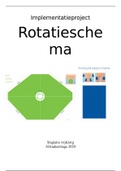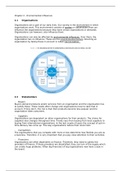Samenvatting
Extensive Labour Law Summary (Obligations and Contract Law II)
- Vak
- 135
- Instelling
- Tilburg University (UVT)
The summary contains the 5 relevant weeks of the second part of Obligations and Contract Law II, namely Labour Law. The summary contains all reading material, class notes and case law from 2023.
[Meer zien]












